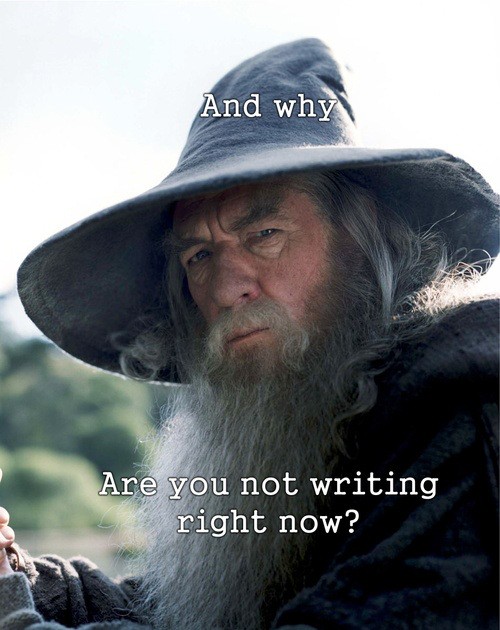Writing well requires intense focus. But it also requires conversation with readers, colleagues, and strangers. The skillful use of email and social media can facilitate those conversations to a wonderful degree.
However, email and social media attack your focus, by design. They’re engineered by brilliant people who make their livings by attracting your attention into their channels. So how does one participate in the real time global conversations and still get writing done?
Austin has great pieces in the Upshot and TIE about how he conserves his attention.
I felt like I was bouncing from task to task all day — because I was. My work days had become cycles of: type a few sentences, check email, check Twitter, check the news, repeat. This process was itself interrupted by sporadic meetings and phone calls.
I couldn’t focus because I had spent years training my mind not to do so.
His solution was to devise a personal schedule with times each day that are dedicated to undistracted work.
Cal Newport is a theoretical computer scientist who makes his living proving theorems. He needs focus just a bit less urgently than he needs oxygen. In his book and his blog, Newport presents strategies for cultivating
the ability to focus without distraction on a cognitively demanding task.
Newport completely abstains from social media. He has a post in praise of the famous computer scientist Donald Knuth, who checks email only four times a year. Knuth explains:
Email is a wonderful thing for people whose role in life is to be on top of things. But not for me; my role is to be on the bottom of things. What I do takes long hours of studying and uninterruptible concentration. I try to learn certain areas of computer science exhaustively; then I try to digest that knowledge into a form that is accessible to people who don’t have time for such study.
Newport’s core strategy is to create places and regular times of solitude, devoted to deep work. He fortifies these havens with rituals* that mark these occasions and dedicate them to cognitive effort, as if he were a Benedictine of focused attention.
I have made many efforts to build regular structure into my week. Unlike Newport or Knuth, my job involves operational responsibilities in difficult team-based projects. Being unavailable on email would damage those projects. In short, so far I haven’t been able to set out fixed blocks of uninterruptible times. Maybe the next attempt will work.
But I have learned to forage for times and settings for concentration. A coffee shop near the car repair. A sofa outside the meeting room at a conference. What I learned from Newport, and what helps enormously, is a ritual of dedication to focus.
When I get an opportunity, I commit to a block of 30 minutes of uninterrupted work on a single writing or programming task. I follow rules. I switch whatever application I’m using to full screen mode. I start a timer. I do not leave the task before the bell rings. If I finish early, I have to find another task, because I can’t break attention for 30 minutes. When the timer rings I can open myself to the world, without this inner voice:

This strategy works and it gets better with practice. Like workouts in athletic training, if I go too long without a 30 minute block I get hungry for the next one.
I track each day’s cumulative writing and focused time. Seeing these time series has changed my life. I have days during which I record no words and no time. Two hours of cumulative focused time a day is respectable. Four is amazing. It’s immediately clear that I have only so many days and hence just a few projects that I can do well. I have to choose better.
*See also the writing rituals of the novelist Steven Pressfield

